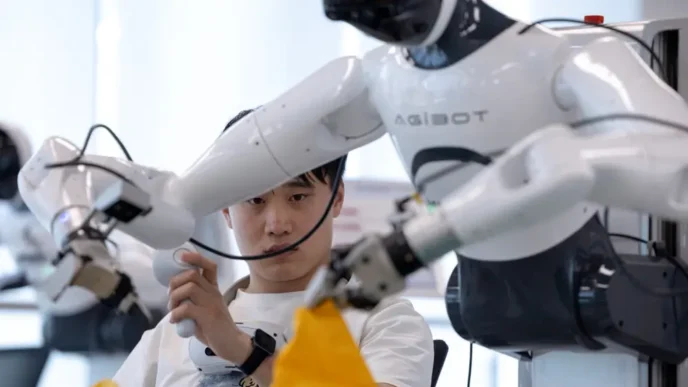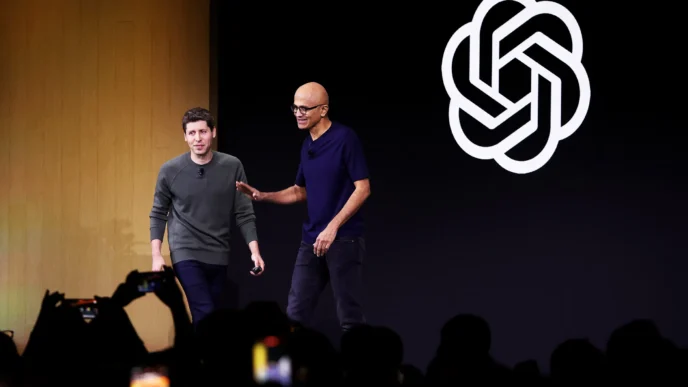AI shopping agents are becoming one of the biggest forces reshaping how people buy online, and Morgan Stanley believes the shift will be dramatic. The firm shared a new outlook last week showing that nearly half of all online shoppers in the US may rely on AI shopping agents by 2030. That leap could add as much as $115 billion to the country’s e-commerce market as these tools take over search, product filtering, and everyday purchasing.
The report describes these tools as “agentic commerce” systems, AI-powered personal shoppers that can compare prices, recommend products, manage baskets, and even handle orders from start to finish. Morgan Stanley noted that as consumers digitize more of their spending, these AI shopping agents could unlock enormous value by speeding up decisions and reducing the friction that usually comes with browsing hundreds of options.
This outlook also explains why major retailers are racing to introduce their own AI assistants. Amazon launched Rufus, Walmart unveiled Sparky, and Target rolled out a ChatGPT-powered shopping app. Each company is betting that easier, smarter, and more personalized shopping will push more transactions online and keep users inside their ecosystems for longer.
OpenAI also stepped deeper into agentic commerce this week. ChatGPT now offers a dedicated “shopping research” feature that helps users find the products that truly match their needs. Google followed a similar path, adding new AI shopping tools in time for the holiday rush. One of its standout features can even place calls to nearby stores so shoppers can confirm availability without doing the work themselves.
Morgan Stanley believes groceries may be the strongest early driver for agentic commerce. Because grocery shopping is repetitive and time-sensitive, AI shopping agents could handle replenishment, find deals, and automate weekly lists with almost no effort from the user. After groceries, categories like household goods, personal care, and apparel are expected to see the biggest boost as consumers grow more comfortable outsourcing decisions to AI.
Amazon appears well positioned for this shift. Rufus, its AI shopping assistant, is already expected to indirectly boost the company’s operating profit by more than $700 million this year, according to previous reporting. CEO Andy Jassy recently told analysts that the tool could drive $10 billion in incremental annualized sales, though he acknowledged there is still room to improve the customer experience.
Even so, Jassy stressed that the long-term upside is huge. He said the promise of agentic commerce is to increase the amount of shopping done online, not just shift it from one retailer to another. As AI shopping agents become better at understanding personal taste, handling complex requests, and making decisions faster than humans, the gap between browsing and buying will continue to shrink.
The broader message is clear. AI shopping agents are on track to become one of the biggest consumer applications of generative AI. They are changing how people discover products, how retailers compete, and how money flows through the digital marketplace. And by 2030, they may be responsible for one of the most significant expansions in US e-commerce in over a decade.
There are also growing questions about how this shift will reshape competition and consumer trust. As AI shopping agents take on more control, brands may find it harder to stand out without optimizing for AI-driven discovery rather than human browsing.
At the same time, regulators and consumer advocates are likely to scrutinize how these systems rank products, handle sponsored placements, and use personal data.
Morgan Stanley hinted that transparency and trust will become just as important as speed and convenience, especially as shoppers begin to rely on AI agents not just for suggestions, but for final purchasing decisions made on their behalf.













